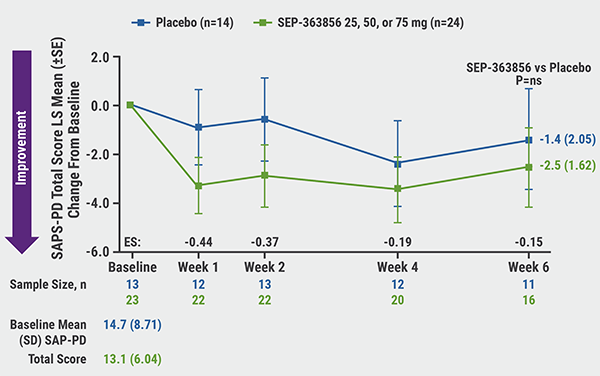Lecanemab is a humanised IgG1 mAb that selectively binds amyloid-beta (Aβ) protofibrils. It is 1 of 4 mAbs that have recently shown anti-amyloid efficacy, the others being aducanumab, donanemab, and gantenerumab. In subjects with early AD, lecanemab demonstrated dose-dependent reductions in brain amyloid in an 18-month, placebo-controlled, phase 2 study (NCT01767311) [1]. The primary endpoint –demonstrating an 80% probability that lecanemab was superior to placebo by 25% at reducing the Alzheimer’s Disease Composite Score (ADCS) after 12 months– was not met. After 18 months, this probability was 76%, just missing the 80% threshold, explained Dr Chad Swanson (Neurology Business Group, Eisai Inc., NJ, USA). This prompted the open-label extension (OLE), of which he shared the preliminary results over 12 months [2].
Subjects received lecanemab 10 mg/kg biweekly for up to 24 months. There were 143 subjects who contributed to the longitudinal amyloid PET imaging dataset of the OLE. The observed reductions in brain amyloid depended on the treatment received during the core study. “Patients initially assigned to placebo showed the greatest reductions, with effects noted as early as 3 months,” Dr Swanson said. Estimated reductions on PET standard uptake value ratio (SUVr) in this group were -0.08, -0.17, and -0.33 at 3, 6, and 12 months, respectively. The reductions were lower in patients who had received lecanemab in the core study, dependent on baseline PET SUVr values at the start of the OLE.
Of 180 dosed patients, 14 (7.8%) had cerebral oedema (ARIA-E) during the OLE. This occurred in 8.9% of patients allocated to placebo in the core study, all of which were ApoE4+. Some patients with mild or moderate ARIA-E resumed treatment.
- Swanson CJ, et al. Alzheimer’s Res Ther. 2021;13(1):80.
- Swanson C. Preliminary analysis of BAN2401 effects on brain amyloid and ARIA-E findings over 12 months of treatment in the open-label extension of the Phase2b study BAN2401-G000-201 in subjects with early Alzheimer’s Disease. S19.001, AAN 2021 Virtual Congress, 17-22 April.
Copyright ©2021 Medicom Medical Publishers
Posted on
Previous Article
« COVID-19 could cause novel seizures in patients without epilepsy Next Article
Extraordinary transformation of epilepsy care in Ontario »
« COVID-19 could cause novel seizures in patients without epilepsy Next Article
Extraordinary transformation of epilepsy care in Ontario »
Related Articles

June 16, 2021
Gene therapy for Leber hereditary optic neuropathy
June 16, 2021
Tolebrutinib reduces brain lesions in very active MS
© 2024 Medicom Medical Publishers. All rights reserved. Terms and Conditions | Privacy Policy
HEAD OFFICE
Laarderhoogtweg 25
1101 EB Amsterdam
The Netherlands
T: +31 85 4012 560
E: publishers@medicom-publishers.com

